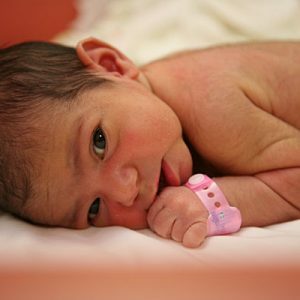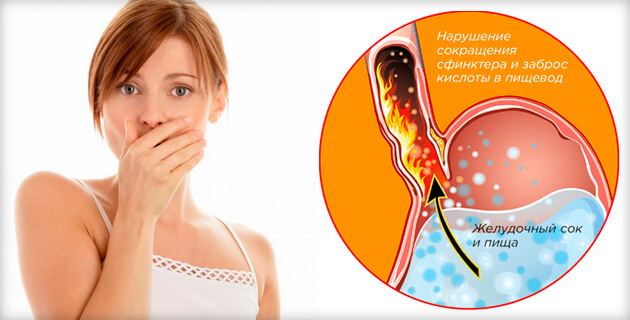29th week of pregnancy: fetal development, mom's well-being
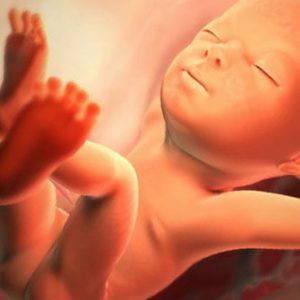 Every day the baby is getting more and more prepared for life outside the mother's body, but it's too early for him to get acquainted with the parents, so the expectant mother should try to reach the end( at least until 38 weeks).To do this, she must be protected from injuries, stress and excessive physical exertion, monitor health and nutrition, adhere to medical recommendations and not engage in self-medication.
Every day the baby is getting more and more prepared for life outside the mother's body, but it's too early for him to get acquainted with the parents, so the expectant mother should try to reach the end( at least until 38 weeks).To do this, she must be protected from injuries, stress and excessive physical exertion, monitor health and nutrition, adhere to medical recommendations and not engage in self-medication.
What happens to the baby at the 29th week of pregnancy
The fruit weight at this time is1200-1250 g, height - 37-38 cm. With the body of the baby, fleece hair and protective grease are gradually disappearing.Eyebrows and eyelashes appear on the face.Skin folds are getting smaller - they are filled with a fatty layer.By the way, in the body of the fetus, a significant part of the fat deposits is represented by brown fat, which plays an important role in the thermoregulation of the baby after birth( in fact, this fat warms the crumbs).
At the 29th week, the functioning of the baby's organism continues to improve. The synthesis of hormones by the endocrine organs is gaining momentum, trying to digest its contents in the intestine( while he has to digest just a slurry that is contained in the amniotic fluid, but very soon he will earn in full), the surfactant accumulates in the lungs, thereby increasing the chance of crumbs to make the firstSigh after birth by yourself.
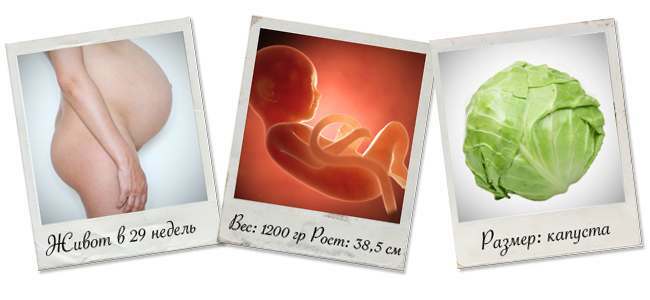
The bones of the fetus are strengthened, this requires a lot of calcium, but if the future mother feeds properly, the building element will be enough for her and the baby.But the first sign that calcium is a problem is the increased sensitivity of the teeth. If she appeared, a woman should necessarily discuss with a gynecologist the advisability of correcting a diet, and with a dentist to choose special means that protect the enamel of the teeth.
At the 29th week of intrauterine life, many babies are already developing their rhythm of sleep and wakefulness.Therefore, the future mothers may notice that the baby began to kick around at about the same time.Such periods of active movements of the fetus always go into a couple of hours of tranquility - the baby falls asleep.
Important: in the third trimester of pregnancy, a woman should closely monitor whether the baby is moving, prolonged silence may be a sign that the child has a problem and that it is necessary to immediately go to the doctor.
Hormones and well-being of the future mother
During the gestation of the baby in the female body, the hormonal background changes dramatically, each synthesizing hormone playing a special role in the development of the fetus, maintaining pregnancy and preparing for childbirth:
-
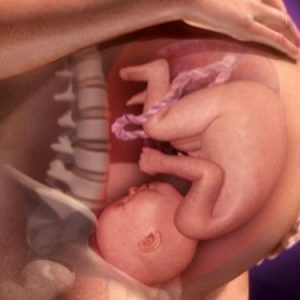 Chorionic gonadotropin , which begins to be synthesized immediately after the attachment of the fetal egg in the uterus, does not allow another menstruation to come and causes the pituitary to begin restructuring the entire hormonal activity of the female body.
Chorionic gonadotropin , which begins to be synthesized immediately after the attachment of the fetal egg in the uterus, does not allow another menstruation to come and causes the pituitary to begin restructuring the entire hormonal activity of the female body. - Estrogens , female sex hormones, affect the development of the baby, promote the growth of the uterus and the preparation of the female genitalia for childbirth.
- Progesterone, is the most important hormone for maintaining pregnancy, prepares the endometrium for implantation, relaxes smooth muscles, thus preventing uterine contractions, blocks the immune system of the mother, preventing it from rebelling against the life that has arisen.
- The placental lactogen , by reducing the formation of proteins and lowering the sensitivity of tissues to insulin, increases the content of amino acids and glucose in the maternal blood and thus provides the crumb with energy and building material.
- Relaxin relaxes ligaments, softens the cervix, prepares the female body for childbirth.
- Prolactin is responsible for the enlargement of the mammary glands and the formation of lactation.
- Thyroid gland at the initial stages of fetal development play an important role in the formation of its nervous system.
- Adrenal hormones suppress the immunity of the mother and mobilize the protein from her tissues to provide the baby with amino acids.
- Progesterone is the culprit of drowsiness, tearfulness, irritability, heartburn, constipation,Nausea.
- Relaxin is the cause of back pain and an increased risk of sprains and dislocations.
- Adrenal hormones cause thinning of the hair and deterioration of the skin.
- Placental lactogen promotes the development of gestational diabetes mellitus.
Thus, every hormone produced by a female body has its "positive" and "negative" influences on the well-being of a future mother.However, without these influences, the successful course of pregnancy and childbirth is impossible. Therefore, if a woman's body does not cope with the load and can not synthesize the necessary amount of hormones, the doctor necessarily prescribes hormonal preparations to the patient.
29th week of pregnancy: weight and dimensions of the abdomen
 In the third trimester, the gynecologist will closely monitor the weight and the abdomen of the pregnant woman.Why?Large weight is one of the indirect signs of gestosis.Too fast mass recruitment by a future mother may indicate hidden swelling( they are internal, so you can not see them). The recommended weight gain at this time is 300 grams per week, the total increase by the end of 29 weeks should not exceed 10 kg.
In the third trimester, the gynecologist will closely monitor the weight and the abdomen of the pregnant woman.Why?Large weight is one of the indirect signs of gestosis.Too fast mass recruitment by a future mother may indicate hidden swelling( they are internal, so you can not see them). The recommended weight gain at this time is 300 grams per week, the total increase by the end of 29 weeks should not exceed 10 kg.
With regard to the size of the pregnant belly, the dynamics of their increase in the gynecologist can assess how well the fetus is developing.If the uterus does not grow, then the baby does not grow. Therefore, when the height of the standing of the uterus( VDM) is less than 27 cm at 29 weeks, and the abdominal circumference( OJ) has not increased by at least 1 cm from the previous examination, the doctor can send the patient to an ultrasound examination.
Possible complications
Heartburn, constipation, fatigue, swelling of the legs, shortness of breath, back pain, urinary incontinence - this is certainly unpleasant, but the future mother can not escape from these problems.All of them are a "side effect" of pregnancy. But what really should be feared is complications of pregnancy, which at the 29th week of bearing a baby can be manifested by the following menacing signs:
-
 Pronounced edema that does not go away after rest.
Pronounced edema that does not go away after rest. - Bleeding or leakage of fluid from the vagina.
- Persistent pain in the abdomen, back, perineum, waist.
- Long and regular contractions.
- By repeated dizziness and loss of consciousness.
- A severe headache.
- "Flies" before the eyes.
- Multiple vomiting.
- Pronounced weakness when there is no strength at all to get out of bed.
- Fever.
- Absence or gradual extinction of motor activity of the fetus during the day.It means, if the baby is usually very active, but then suddenly it became quiet or the fir-tree sprouts noticeably.
- Strong fetal anxiety.Some mothers in such cases say that the child seems to want to get out of the stomach.Increased motor activity may indicate that the baby does not have enough oxygen.
In addition, with the increase in the size of the uterus, future mothers are more likely to develop a syndrome of the inferior vena cava, a pathological condition characterized by worsening of venous blood outflow from the lower body and a decrease in the return of venous blood to the heart. With this syndrome, a whole cascade of pathological reactions is triggered in the woman's body: blood pressure drops, blood and tissue saturation with oxygen decreases, there is venous congestion in the legs, etc.The main cause of the syndrome is squeezing the inferior vena cava by the uterus.At the end of the third trimester and with polyhydramnios, the compression of this vessel is possible in any position, but at the 29th week - only when the future mother lies on her back. The manifestations of the inferior vena cava syndrome are as follows:
- Dizziness, weakness, lack of air, fainting, nausea, darkening in the eyes.
- Hemorrhoids and varicose veins of the lower extremities.
How to prevent the development of the syndrome of the inferior vena cava:
- Sleep and rest on the left side or reclining.During sleep, put special pillows under your back and between your legs.
- Change the position of the body more often
- Engage in swimming( in the water, the outflow of blood from the veins of the legs improves).
- Regularly walk on foot( it is not necessary that the distances were long, the main thing is that the periods of rest and motor activity constantly change each other).
- Perform special gymnastic exercises for pregnant women, if there are no contraindications.
Necessary examinations

At the 29th week, in addition to a general urine test( it is submitted if a visit to the doctor is planned), no studies are planned. A future mother needs to monitor the activity of the baby and regularly fill in the test of perturbations. The next week will be more restless, because before going on maternity leave a woman should repeatedly pass a number of blood tests: general, biochemical, for infection.In addition, it will be necessary to visit the therapist, since in the third trimester the burden on the future mother's organism increases, so new or long-forgotten diseases can make themselves felt.
Zubkova Olga Sergeevna, medical reviewer, epidemiologist-doctor


